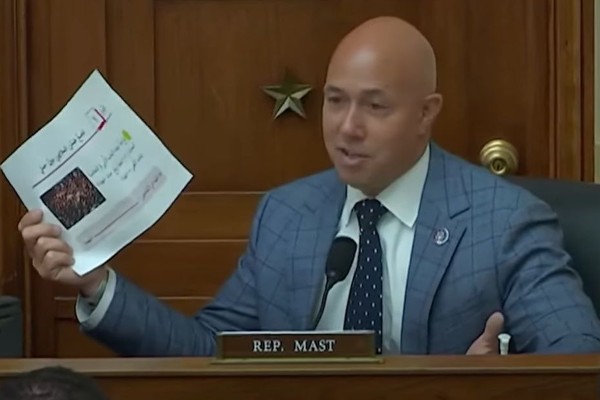“American dollars must be spent in a way that reflects American values of tolerance and peace-building,” says Congressman Brad Sherman.
By Pesach Benson, United with Israel
The House Foreign Affairs Committee unanimously approved bipartisan legislation to block U.S. taxpayer money from funding antisemitic school material in Gaza Strip schools on Thursday. The bill will now go to the full House of Representatives for a vote.
The legislation would require the U.S. Department of State “to conduct an assessment of educational materials used in schools in Gaza and Palestinian Authority-controlled areas and determine if the materials encourage violence towards other groups, including Israelis,” and also gauge “if any US foreign aid is used to produce or disseminate such materials.”
The bill was introduced by Rep. Brad Sherman (D-Cal) and Rep. Brian Mast (R-Fla) and co-sponsored by Representatives David Trone (D-Md), Lee Zeldin (R-NY) and Josh Gottheimer (D-NJ).
A companion bill has also been introduced to the Senate by Sen. John Kennedy (R-La.) and referred to the Senate Committee on Foreign Relations.
“For decades, the United States and the American people have been the top donor to the Palestinian people, including to the Palestinian Authority and UNRWA – but this is not a blank check,” Sherman said in a statement.
“American dollars must be spent in a way that reflects American values of tolerance and peace-building. Unfortunately, the current Palestinian Authority curriculum, used by both Palestinian Authority and UNRWA schools, falls short of reflecting those values.”
He added, “Instead of envisioning a Palestinian state alongside Israel, textbooks erase Israel from maps, refer to Israel only as ‘the enemy,’ and ask children to sacrifice their lives to ‘liberate’ all of the lands between the Jordan River and Mediterranean Sea.”
Sherman noted, “One horrific example includes a 5th grade textbook which encourages students to emulate Dalal Mughrabi, a convicted terrorist who perpetrated the 1978 Coastal Road massacre which killed 38 Israeli civilians – including 13 children.”
During Thursday’s committee hearing, Mast highlighted two specific examples of incitement in the Palestinian curriculum.
One was a math problem for fourth graders.
“In this fourth grade Palestinian math problem, they ask this: The number of martyrs of the First Intifada is 2,026 martyrs. And the number of martyrs of the Al-Aqsa Intifada is 5,050. The number of martyrs in the two intifadas is X number of martyrs. That’s an actual math problem out of a Palestinian textbook.”
The other was 6th grade geography curriculum. Students were asked to “define the borders of Palestine” with a map that “completely erased Israel’s existence.”
Said Mast, “Basically, the hope for peace in that region is to, what? Ask the kids to not attend school? … The answer has to be make sure that they are not being taught this type of curriculum and above that, make sure that U.S. taxpayers certainly are not paying to make this the curriculum that they are being taught.”
According to House committee chairman Rep. Gregory Meeks (D-NY), the State Department helped finalize the legislation’s language and does not oppose its adoption.
In June, the European Union voted to release millions of dollars in funding to the Palestinian Authority that had been frozen over similar concerns. Reports suggested that the EU opted to prioritize PA stability rather than address antisemitism and incitement being taught. The Palestinians claimed the move as a diplomatic victory.
